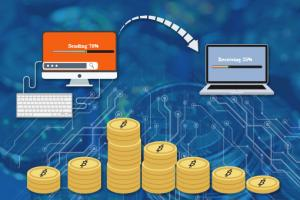Kindly Refer to
Privacy Policy &
Complete Terms of Use and Disclaimer.
The circulation of Virtual Currencies which are also known as Digital/ Crypto Currencies has been a cause of concern. This has been expressed in various fora from time to time. Reserve Bank of India had also cautioned the user’s, holders and traders of Virtual currencies (VCs), including Bitcoins, about the potential financial, operational, legal, customer protection and security related risks that they are exposing themselves to vide it’s press releases dated 24th December, 2013 and 1st February, 2017.

In order to examine the existing framework, Department of Economic Affairs, Ministry of Finance has constituted an Inter- Disciplinary Committee chaired by Special Secretary (Economic Affairs) and representatives from Department of Economic Affairs, Department of Financial Services, Department of Revenue (CBDT), Ministry of Home Affairs, Ministry of Electronics and Information Technology, Reserve Bank of India, NITI Aayog and State Bank of India on 15th March, 2017.
The Committee will (i) take stock of the present status of Virtual Currencies both in India and globally; (ii) examine the existing global regulatory and legal structures governing Virtual Currencies; (iii) suggest measures for dealing with such Virtual Currencies including issues relating to consumer protection, money laundering, etc; and (iv) examine any other matter related to Virtual Currencies which may be relevant.
Comments/ suggestions from the members of public are requested on the following questions by 31th May, 2017 on the website: MyGov.in.
a) Whether Virtual Currencies (VCs) should be banned, regulated or observed?
b) In case VCs are suggested to be regulated:
i). What measures should be taken to ensure consumer protection?
ii). What measures should be taken to promote orderly development of VCs.
iii). Which appropriate institution(s) should monitor/ regulate the VCs?
c). In case VCs are not suggested to be regulated:
i). What should be the effective self-regulatory mechanism?
ii). What measures should be adopted to ensure consumer protection in this scenario?
It is requested that the comments may be supplemented by rationale and brief.

